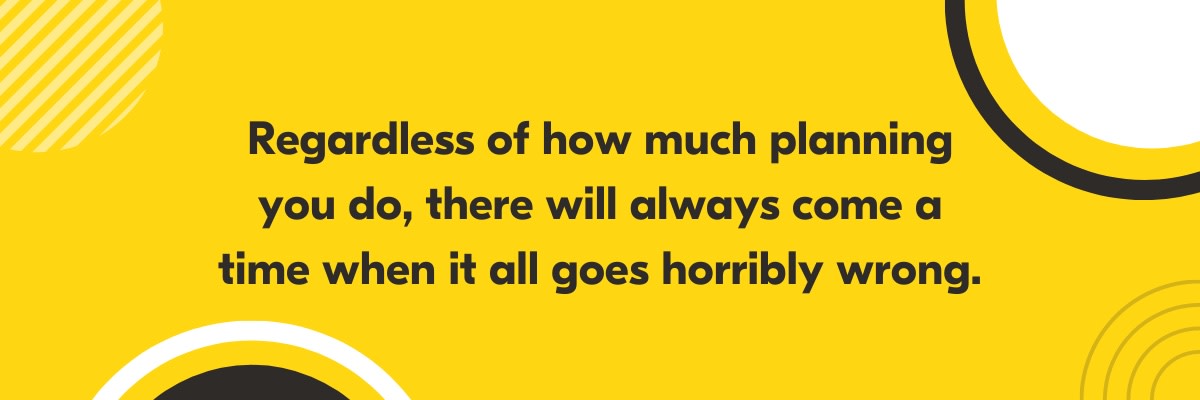Comment Être un Leader Résilient

Leadership can exact a significant strain on your mental and emotional wellbeing, especially during times of high stress and uncertainty. EZRA discusses some of the secrets of becoming a resilient leader both at home and in the workplace, and how you can apply these principles in your own life.
Leadership can take its toll on your personal wellbeing. As a leader, you have to absorb other people’s stress, work through difficult situations and bounce back, ready to take on the next challenge.
It’s not easy. 60 percent of leaders say that they feel “used up” by the end of the day. And 24 percent say that they are considering changing companies because their stress levels are so high.
So what’s the solution?
The trick here is to develop strategies that allow you to lead your team effectively through difficult situations without destroying your wellness in the process.
You want to develop real grit and be the sort of person who is able to keep moving forward towards their goals in the face of hardship without adverse effects on your mental or physical health. You need to transform yourself from somebody who feels like they are sprinting from one goal post to the next into a marathon runner, capable of going all the way.
Let’s discuss some of the techniques that you can use to become more resilient and bounce back from difficult situations, helping you to become a better and more productive leader.
Learn how to wield stress in your favour
For leaders, stress is an inevitable part of work. Regardless of how much planning you do, there will always come a time when it all goes horribly wrong.
In these situations, stress can actually be a good thing. A pounding heart and flood of adrenaline can help you galvanise your team and do what needs to be done to solve the problem.
However, difficulties emerge when stress goes on long-term. If you continually feel tense at work, it saps the joy out of life and can lead to health problems. Effects of chronic stress on the body include mental health issues, such as anxiety and personality disorders, obesity, eating disorders, skin and hair problems, and gastrointestinal issues, such as irritable bowel and gastritis.
The trick is to find ways to come out of stress quickly and return the nervous system to its default, relaxed state. But how do you do this?
The first stage is to become aware of the stress levels that you face. Paying attention to your mood and learning about how you feel hour by hour, day by day, provides you with information you can use to judge whether you are tense or not.
Signs of stress vary from person to person. For some, it is tension in the stomach, while for others, it is a grinding sense of dread and anxiety.
You can view these as your “personal alarm bells.” If they go off, it is a sign that you need to regroup and recharge.
The next step is to take a rain check. To bring stress levels under control, remind yourself that being stressed is unlikely to improve your effectiveness or productivity. Instead, it may actually decrease creativity and performance.
Depending on your personality, you can also try other strategies. These include things like:
Prioritizing your sleep schedule (and avoiding the temptation to send 3 am emails)
Finding new ways to relax such as yoga and meditation
Focusing your nutrition on anti-inflammatory foods, such as berries, greens, nuts and seeds
Learning to let go of missed opportunities and avoiding rumination
Balancing your work with your leisure and family time
Learning to laugh a little when things go wrong
Finding ways to do more for others
Using physical activity as a way to bring stress levels down if they remain elevated for too long
Changing destructive personality traits that compound the effects of stress (such as getting angry whenever things inevitably go wrong)
Get coach or mentor for support
You’ll also want to back up your efforts with a support coach or mentor to guide you through the most challenging times. Such people can act as sounding boards and provide you with opportunities for constructive self-reflection. Studies, for instance, show that mentors or coaches can massively help to reduce burnout as well as make workers feel more confident.
Importantly, support networks like this can provide you with new ideas for getting stress levels under control. They remind you to use stress reduction techniques when you need them most.
Adopt the Alexander Technique
You can also try using the Alexander Technique, an approach that attempts to manipulate the body’s response to stress by changing the way that you move through everyday activities. The technique focuses on eliminating sources of tension while providing you with ways to move more gracefully.
The Alexander Technique can deal with many of the common physical ailments associated with work including carpal tunnel syndrome, sore neck and backaches. People have been using it for more than a century with some remarkable results.
It is particularly popular among high-performing individuals who want to improve the quality of their work. Historically, artists, musicians, actors and dancers used it. But today, it has adherents across all domains.
Live a life of expansion, not survival
Perhaps the ultimate path to becoming a resilient leader is to change your level of consciousness. So many leaders are stuck in the world of survival, just trying to get through the week. But according to consciousness experts, such as Dr. Joe Dispenza, this is no way to live. You want your life to be joyful and productive, no matter what challenges you face.
If you find yourself feeling stressed at work, consider what is truly important to you. Think about why you are working so hard in the first place. When you probe this question honestly, you discover that your goal is to expand the set of possibilities that you have. However, you can’t generate that type of experience in your work if you believe that you must survive and you must succeed.

To move away from survival to a higher level of consciousness, you must minimize the seriousness of what you are doing. Try to view your activities as a form of play. Adjust your mindset so that you are in a mode of discovery, not one of fear. View yourself as an experimenter in the world, trying out new things to see if they work. If they don’t, it doesn’t matter. There are always more opportunities.
Make coaching into your personal super power with Ezra’s world-class employee coaching, built to fit into today’s working life. We’ve redesigned leadership coaching for the modern age to help transform people through affordable, scalable and high-impact solutions, with equitable access through our world-class coaching app. Find out today how digital coaching could make a big difference to your organization.